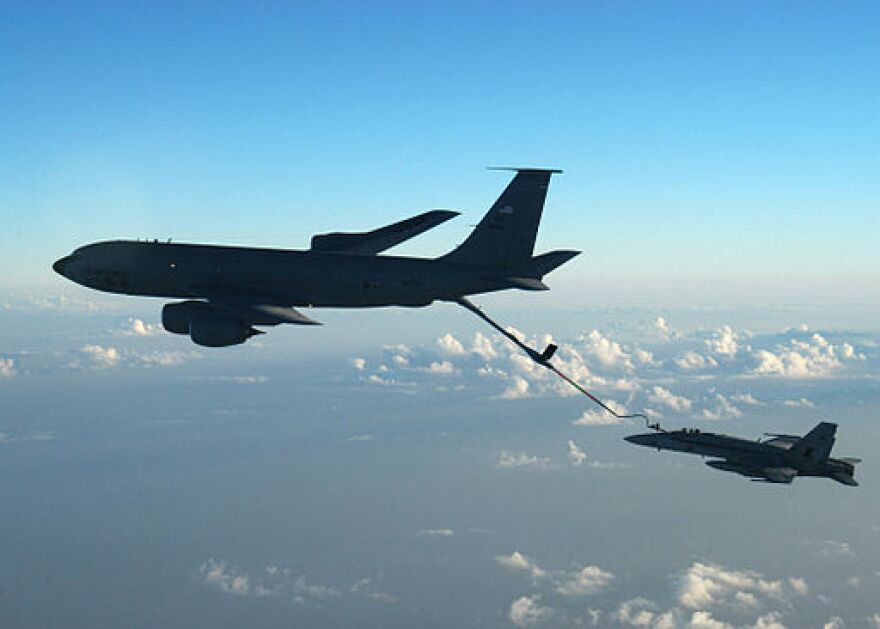A leading defense analyst who had previously predicted a Boeing win in the competition to build the US Air Force's next generation of refueling tankers now says Airbus parent EADS will likely get the $40-billion contract.
The Mobile Press Register in Alabama (where the EADS plant to build the tankers would be located), has this post quoting Loren Thompson of the Lexington Institute in Arlington, Va., saying EADS has emerged as the clear favorite for the coveted deal, based on the Air Force's internal analysis of the two competing bids.
"Boeing has lost this competition," Thompson told the paper, citing conversations with Boeing executives. "The only question now is whether they choose to protest the award, and I'm not sure they will."
Thompson said Boeing executives concluded last week that they were beaten after getting a look at the Air Force's technical analysis of the two competing planes. The inside look came after the Air Force mistakenly sent discs containing the analysis of each bid to the opposing party.
The Seattle Times confirms Thompson's hunch, citing two Congressional sources familiar with the $40 billion tanker competition. However, neither Boeing nor EADS would comment on the issue.
The Air Force is expected to announce a winner for the contract as early as next month.
Washington Governor Chris Gregoire has said a Boeing victory would amount to at least 9,000 local jobs. Senator Maria Cantwell has estimated it would provide as many as 50,000 jobs nationwide. It would be built on the 767 airframe and keep that line open in Everett.
According to Thompson, the Airbus A330 tanker is scoring well ahead of the Boeing 767 tanker in a mission effectiveness rating. That's one of three categories of criteria that will decide the bid and considered the most important. The Seattle Times reports that the two others are assumed to favor Boeing's smaller aircraft: military infrastructure construction costs and fuel burn over the entire life-cycle of the program.
Local analyst Scott Hamilton argues the only politically viable solution for Congress would be a split-buy of the contract between both Boeing and EADS. This is also in light of an ongoing fight about Airbus subsidies before the World Trade Organization, which is unlikely to be resolved before the tanker fleet is needed.







